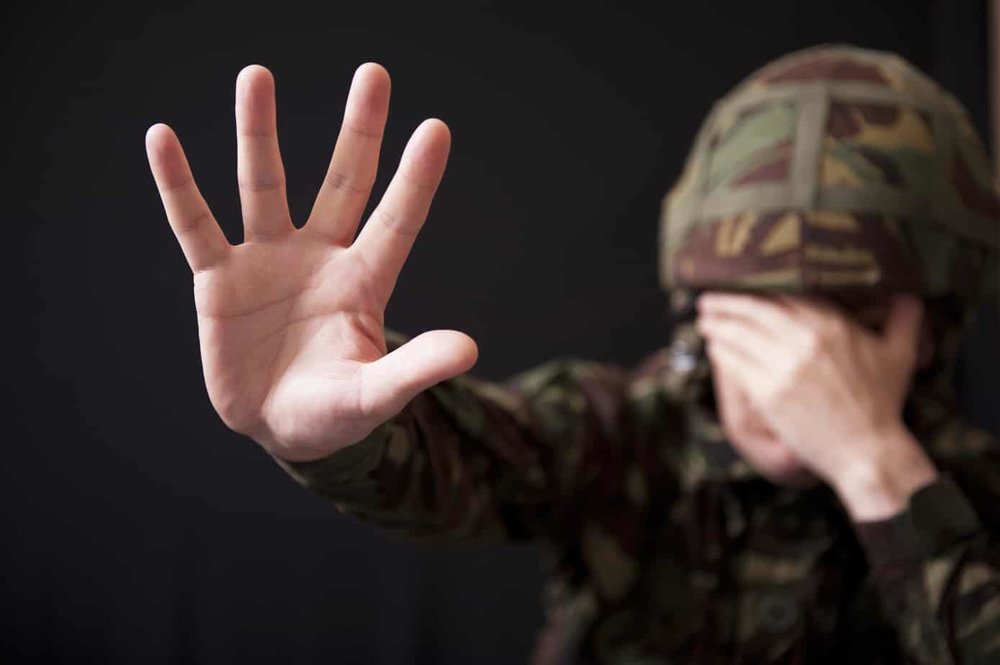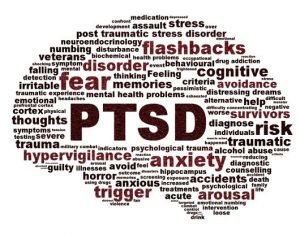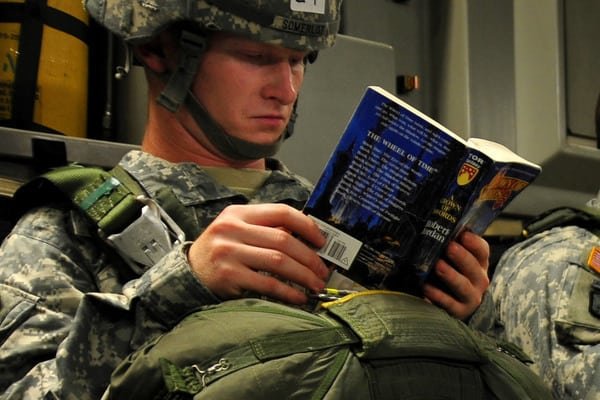
PTSD Alert: What Research Says About Post-Traumatic Stress Disorder

Military veterans around the globe have higher chances of experiencing PTSD for several reasons. For one, since it’s a reality that these folks are exposed to inevitable and unpredictable traumatic situations, they are likewise more prone to experiencing fear, anxiety, shock, and stress. With that in mind, we find a need to heighten awareness about PTSD as well as its causes, signs, symptoms, and therapies among active soldiers and veterans.
What is PTSD?

PTSD is a very serious mental disorder, which is usually caused by an emotionally shocking event, which changes the life of a person forever.
Our brain is programmed to trigger changes in our body and reactions when we deal with a very scary situation. It’s part of our body’s defense system against potential threats, and such reactions happen in a split second. Thus, from that point of view, it’s something that could happen to all of us. However, PTSD is different.
While a traumatic event causes certain reactions to every human being, there are some people who continue to experience such reactions even after a dangerous situation has passed, and that’s what PTSD is all about.
How Does PTSD Affect One’s Love Life?
According to researchers, PTSD can cause an array of problems when it comes to a person’s intimate relationship. Initially, a person suffering from the disorder revolves around negative thoughts and feelings, as well as around a lack of ability to adjust to everyday life after returning home. Many a time, soldiers suffering from PTSD end up getting a divorce or being violent towards their children or spouse.
Possible Breakups And Problems With Their Loved Ones
In the last couple of years, PTSD and its consequences have been widely examined by experts, who came to the conclusion that a veteran’s family life is seriously damaged by the disorder. Such researches were based on what the veterans’ wives had to say, and while most results were about male veterans, it is speculated that female veterans probably face the exact same problems.
Usually, male veterans who suffer from the disorder face problems when it comes to communicating with their wife and children, contrary to those who weren’t diagnosed with PTSD.
Moreover, male veterans tend to isolate themselves and stop showing their feelings, while even greater repercussions are caused in the field of physical intercourse. It has been reported that soldiers with PTSD often have to deal with intimate dysfunctions. In addition, they show much less interest when it comes to engaging in physical intercourse than they did before. This wears down a couple and diminishes the satisfaction they get from being together.
Hostility Towards Others
 According to recent studies, veterans who suffer from PTSD show increased levels of hostility towards people around them, especially to their families. Their hostility is expressed both physically and mentally, while it targets both their partners and their children. Research showed that, contrary to Veterans who didn’t experience traumatic events, soldiers suffering from the disorder perpetrated many more acts of family violence. Such findings are, of course, very alarming.
According to recent studies, veterans who suffer from PTSD show increased levels of hostility towards people around them, especially to their families. Their hostility is expressed both physically and mentally, while it targets both their partners and their children. Research showed that, contrary to Veterans who didn’t experience traumatic events, soldiers suffering from the disorder perpetrated many more acts of family violence. Such findings are, of course, very alarming.
Byrne and Riggs had the same results, as they found out that that 42% of the 50 veterans who participated in their study had been violent at least once in the preceding year, while 92% of them had been verbally hostile at least once. The more severe a veteran’s symptoms were, the more violent their reactions had been.
Partners And The Issues They Face
PTSD is not just about the person suffering from it. Studies have shown that veterans’ partners have also faced several mental issues due to the severity of their partners’ symptoms.
Meanwhile, Nelson and Wright indicate that people who are in a relationship with veterans suffering from the disorder have trouble dealing with their partners’ symptoms, while they feel that their needs are left unsatisfied. Most importantly, there have been reports about spouses being the victims of both physical and mental violence. This is what experts call a “secondary traumatization”. This happens when a person with PTSD redirects its emotional trauma to the people around them.
However, other researchers suggest that the partner’s mental issues might be a result of a trauma they’ve developed themselves, due to being close to a veteran suffering from the condition.
The connections between a person’s PTSD symptoms and the issues they face with their partners are still not exact, as the matter hasn’t been examined thoroughly and yet.
Though there is ongoing research regarding PTSD, experts are certain that people suffering from it show emotional instability, hostility and mental numbing, losing the ability to feel love and positive feelings. That, undoubtedly, takes a big toll on a person’s intimate life and isolates them from their loved ones, inevitably.
This works as a vicious circle, as it has been speculated that the lack of communication and the negative situations a couple faces might leed to the exacerbation of PTSD and its symptoms. Veterans suffering from the disorder often isolate themselves, often obsessively thinking about the traumatic event and reliving it over and over.
Riggs, Byrne, Weathers, and Litz examined how PTSD and its symptoms are connected to an unhealthy relationship. The study’s goal was to find the percentage on which the condition’s cluster of symptoms is connected to a person’s disability to express and feel love and similar emotions towards their significant others.
According to the study’s results, a person’s disability to express love limit the feeling of intimacy, and inevitably, lead to unhealthy relationships and even divorces.
Possible Therapies To Help You Out
When it comes to finding a way to overcome the disorder Nelson and Wright highlighted the importance of families educating about mental issues, group therapies and support groups for vets and their loved ones, individual psychotherapy and more.
There are many groups educating people about psychology and showing veterans how to cope with the disorder and its consequences on their family. Such groups also have a secondary goal, and that is functioning as a support group for the veterans’ significant others.
Family therapy seems to be very effective when it comes to a veteran’s symptoms and the solutions they could find in order to adjust to family life.
Similar groups are promoted by the Veterans Affairs PTSD programs, as well as by Vet Centers, in an effort to diminish the negative effects the disorder has caused to many veterans’ families and quality of life.
Concluding, it is important to stress out that vets’ partners should be prepared for difficulties when their loved one has shown alarming symptoms. However, there are many solutions nowadays, and with the treatment options mentioned above, positive results are always possible.
More inLifestyle
-
`
You Must Appreciate the Amazing Growth of the Tulsa Community Foundation
The Tulsa Community Foundation (TCF) is a charitable organization which was founded on the 30th of December 1998 by a banker,...
June 5, 2023 -
`
ELDERBERRIES: Learn about These Powerful, Immune-Strengthening Tart Little Fruits!
What would you do if someone handed you a capsule that could regulate your blood sugar level, help you lose weight,...
June 5, 2023 -
`
Here Is Why Lucy Kennedy Should Be Your Inspiration
For normal people like us, celebrities (or famous people, for that matter) offer a window to the limitless possibilities which we...
June 5, 2023 -
`
If You’re Among The Health-Watchers, You Should Probably Know About Pre-Diabetes
If you’re an adult and consider yourself sufficiently aware, you know what diabetes is. The disease is so common that even...
June 2, 2023 -
`
Motivation Isn’t Enough to Get You to the Finish Line; You Need Discipline!
Motivation is the intrinsic spirit to undertake a challenging task. It is the positive enforcement that comes from within and keeps...
June 2, 2023 -
`
Gardening and Green Activities: a Definite Solution for Your Anxiety Attacks!
If you are not fond of nature and nurturing plants, you may be shaking your head at the idea of gardening....
May 30, 2023 -
`
Health Benefits Of Eating Beets You Probably Didn’t Know
Beets have gained much importance as a healthy low-calorie food option in many diet charts. It has become one of the...
May 30, 2023 -
`
Best Books Ever Written About War That Every Man Should Read
Every military service member needs his daily dose of knowledge and skill enhancement, inspiration and motivation. And reading some books about...
May 30, 2023 -
`
These Celebrities Are Running Multi-Million Dollar Businesses On The Side, And We Don’t Even Know It
The definition of a celebrity is a person who is extremely famous and commands a significant influence due to his or...
May 29, 2023















You must be logged in to post a comment Login